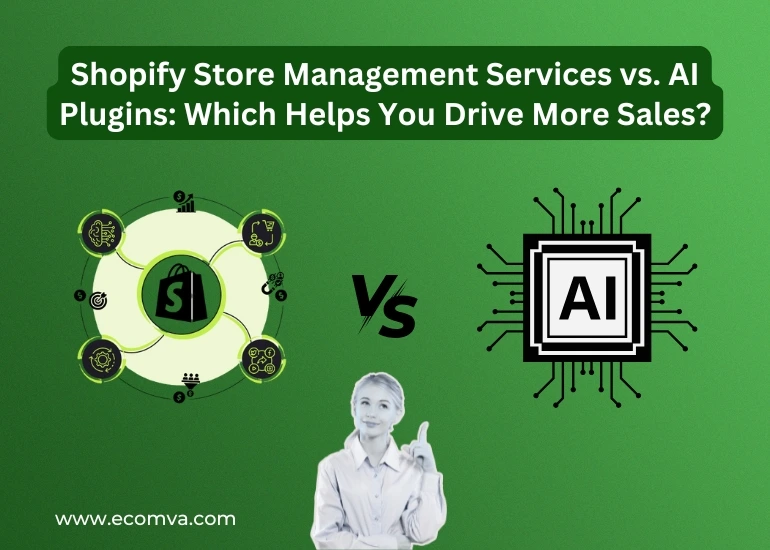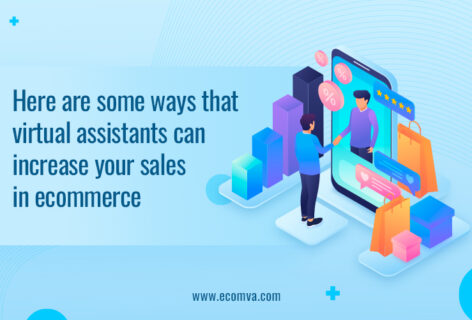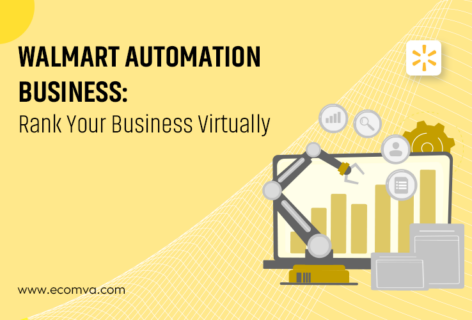Shopify Store Management Services vs. AI Plugins: Which Helps You Drive More Sales?

Online shopping is a habit. In fact, 58% of shoppers now shop online every single week.
For Shopify sellers, this means your store is always being viewed and always being compared. Every product title, image, price update, and stock level matters because there’s always someone browsing.
So the real question isn’t whether you need help managing your store—it’s how you choose to do it.
Should you rely on AI plugins to automate tasks and speed things up? Or should you bring in Shopify store management services to ensure everything is done with strategy, accuracy, and human understanding?
Which option actually helps you sell more?
Let’s take a close look at both.
AI Plugins: What They Actually Do for Shopify Stores
Store owners often try AI tools to save time on content creation, pricing, or automation. But do these plugins really support long-term sales? Let’s look at 4 Shopify-native AI plugins that store owners commonly test—and what they actually deliver.
| AI Tool | Use Case | Pros | Cons |
|---|---|---|---|
| Smartli | Bulk product descriptions with SEO prompts | – Works in Shopify – Custom tone – Good for bulk SKUs |
– Repetitive – No meta fields – Needs manual edits |
| Shopify Magic | Quick drafts for emails & product content | – Built-in – Learns tone – Fast for small tasks |
– Basic formatting – No targeting – Not full campaigns |
| ReConvert | Post-checkout upsells & thank-you pages | – Boosts AOV – Easy templates – Custom triggers |
– Post-sale only – Light branding – Context is rule-based only |
| Prisync | Auto price changes based on competitors | – Automated – Custom rules – Multi-currency support |
– No profit margin logic – Brand risk – Needs clean data |
1. Smartli ‑ AI Product Descriptions
What It Does:
Smartli uses OpenAI-based models to generate product descriptions inside your Shopify product editor. It supports tone-of-voice controls and SEO prompts, giving store owners a quicker way to write listings for bulk products.
Real Shopify Use Case:
You’ve uploaded 200 new products from a supplier feed. You need keyword-friendly, readable descriptions that don’t sound like copy-paste. Smartli can generate descriptions in bulk with custom fields like features, sizing, and material.
Pros:
- Writes directly in the Shopify product editor
- Supports tone customization and a limited SEO structure
- Useful for bulk SKUs where creative copy isn’t critical
Cons:
- Repetition is common across similar products
- Doesn’t optimize for Shopify-specific meta fields (e.g. meta title/description)
- Still requires manual review for branding accuracy
This may work as a temporary solution, but stores focused on Shopify product listing management should use it with human editing.
2. Shopify Magic – Native AI Tool
What It Does:
Shopify Magic is built into the Shopify admin. It uses AI to help merchants draft email campaigns, generate blog content, and write product descriptions directly within the dashboard. It’s available in the Email Marketing and Product modules.
Real Shopify Use Case:
You’re setting up a quick promotion for your fitness gear line and need a campaign email written fast. Shopify Magic drafts it for you in the Email panel.
Pros:
- Seamless integration—no app install needed
- Saves time on simple email flows
- Learns tone-of-voice based on prior input
Cons:
- Limited formatting controls
- Doesn’t handle personalization or segmentation
- Not suitable for a full email campaign strategy
Great for micro-tasks, but not a replacement for marketing expertise or Shopify virtual assistant services that handle audience targeting and campaign tracking.
3. ReConvert Post Purchase Upsell
What It Does:
ReConvert uses automation (with light AI elements) to show upsells, cross-sells, and custom thank-you pages after checkout. You can trigger offers based on order value, product tags, or past purchases.
Real Shopify Use Case:
You sell high-margin accessories. After someone buys a smartwatch, ReConvert displays a 15%-off offer on bands before the confirmation screen.
Pros:
- Boosts average order value through timed post-purchase offers
- Strong analytics and customization options
- Pre-built templates are Shopify-optimized
Cons:
- Limited to the post-checkout phase—no pre-sale personalization
- Offers aren’t deeply brand-aligned unless manually configured
- Doesn’t consider individual purchase context beyond price/tags
It can work well when managed by someone who understands sales flow. Otherwise, it benefits from Shopify store management oversight to avoid misaligned upsell logic.
4. Prisync – Dynamic Pricing for Shopify
What It Does:
Prisync tracks competitor prices and automatically adjusts your Shopify product prices based on the rules you set. It’s designed for merchants in competitive markets like electronics, apparel, and accessories.
Real Shopify Use Case:
You sell headphones that are also listed by competitors. Prisync monitors those listings on Amazon or other Shopify stores and lowers your price by $1 if someone undercuts you.
Pros:
- Fully automated competitive pricing engine
- Supports custom rule-building (e.g. “stay $2 below Brand X”)
- Tracks pricing in multiple currencies and marketplaces
Cons:
- Doesn’t evaluate margin impact or seasonal trends
- Price changes may erode perceived value without warning
- Relies on clean competitor data—errors affect pricing logic
This tool is powerful, but it needs human review to avoid pricing mistakes that reduce profit. Someone managing Shopify inventory management and pricing together can catch those risks early.
Shopify Store Management Services: What EcomVA Offers
When it comes to running a store that sells consistently, detail matters. That’s where Shopify store management backed by experienced professionals makes a difference.
At EcomVA, we work with hundreds of Shopify businesses, offering hands-on services that directly impact performance. Whether you’re launching a new website or scaling an existing one, we help you build a stronger foundation.
Our Services Include:
- Product Categorization and Uploads
- Shopify product listing management (SEO descriptions, image editing, formatting)
- Creating and Managing Product Attributes
- Upsell and Cross-sell Strategy Setup
- Shopify inventory management
- Back-office Shopify support for dropshipping
- Ongoing product edits and listing optimization
- Handling returns and customer issues professionally
Our team also includes experts with experience as an Amazon FBA specialist, allowing us to support multichannel sellers who manage both Shopify and Amazon operations.
These services are provided by experienced Shopify virtual assistant services who understand not just your store, but your target audience.
Why Store Owners Choose Us:
- Up to 75% savings on operating costs
- Over 78% reduction in time spent on manual store tasks
- Support from a dedicated team (VA + Manager + Account Lead)
- Complete transparency—no hidden fees
- Tailored support based on your business needs
Here’s What Our Clients Say:
“I liked EcomVA because they had a solid operating structure—there’s the VA, a VA Manager, and even an Account Manager. Everyone is aligned, and things get done quickly.”
– Ridvan, Shopify Seller
First off, I would like to say how honoured I am to work with this team. They have been nothing short of incredible. Very hands-on teamwork ethic, everyone is willing to learn, and great communication.
– Zack Benson
What Really Drives Sales: Human Strategy vs. Automation
Relying only on AI plugins won’t help your store grow. The best-performing Shopify stores usually combine both: human-led Shopify store management to plan and oversee, and automation tools to handle repeat tasks efficiently.
Humans Build the Strategy
Human teams bring experience that software can’t replicate. They:
- Write product listings that speak to real customer intent, not just filler text
- Monitor store data to adjust based on actual performance (not just set rules)
- Spot poor-performing products, update collections, and manage seasonal campaigns
- Communicate directly with suppliers or teams to prevent costly mistakes
- Plan pricing and promotion strategies based on market context, not formulas
This type of oversight helps avoid blind spots that plugins typically miss.
Tools Handle the Volume
When paired with strategy, automation tools increase efficiency. They:
- Speed up bulk editing (like price updates or image uploads)
- Draft basic descriptions or marketing copy for human review
- Push stock and price changes from suppliers into the store
- Display automated product suggestions or upsells post-purchase
The key is to use tools for what they’re good at—handling volume, not making business decisions.
But without someone reviewing them, they make mistakes that cost sales.
The Real Growth Comes from Blending Both
Let tools handle the repetitive stuff. Let people handle the critical decisions. That balance is what helps stores grow without sacrificing quality.
Human vs. AI Support – What Impacts Sales More?
| Task Area | AI Plugin Result | Human Support Result |
|---|---|---|
| Product Listings | Fast, often generic | SEO-rich, on-brand, conversion-ready |
| Inventory Management | Auto-sync only | Manual checks, reports, multi-supplier |
| Customer Support | Bots, limited replies | Real-time help, problem-solving |
| Price Adjustments | Rule-based | Strategy-led changes |
| Dropshipping Oversight | Stock sync only | Supplier communication + order control |
| Seasonal Promotions | Limited logic | Fully customized and executed |
Choosing the Right Setup for Your Shopify Store!
There’s no one-size-fits-all answer—but if your goal is to grow, reduce cart abandonment, and build a store that lasts, relying only on AI won’t cut it.
Use plugins for bulk tasks where human input isn’t critical. But when it comes to sales-driven areas like product listings, customer handling, and inventory tracking, go with Shopify store management services that work with care and precision.
At EcomVA, our team supports every part of your business. From virtual assistants to catalog managers, we’re here to help your store run better every day.
FAQs
1. Can I use AI tools and still hire Shopify store management services?
Absolutely. In fact, that’s the smartest approach. Many store owners use AI for bulk or repetitive tasks, while their VA team ensures listings, pricing, and marketing strategies align with their brand and audience. It’s not either-or—it’s about balance.
2. How do I know if an AI plugin is hurting my store instead of helping?
If you notice a rise in bounce rates, lower conversions, or inconsistent branding across product pages, AI might be applying generic content or making rule-based decisions that don’t suit your products. Human review can catch and fix that.
3. What’s the biggest risk of relying only on AI for Shopify management?
Lack of context. AI doesn’t understand your brand voice, seasonal trends, or customer feedback the way a human can. That can lead to mismatched messaging, pricing mistakes, or even product listing issues that cost you sales.
4. I only sell 20–30 products. Is hiring a management team overkill?
Not at all. Smaller catalogs still need proper optimization to compete. In fact, stores with fewer SKUs benefit even more from expert oversight—because every listing matters, and each one directly impacts your revenue.








